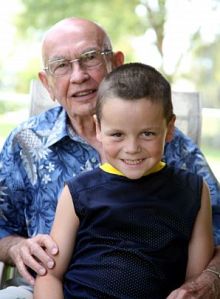How should I respond to my mentee's requests for gifts?
Most formal mentoring programs have specific guidelines about how to handle gifts and spending money on your mentee, so check with your coordinator first. Some programs strongly discourage or even forbid gifts. Programs that have “no gifts” policies typically put them in place to avoid offending a mentee’s family or putting mentors in situations they can’t afford. Other programs leave the decision to give or not to give entirely to the mentor’s discretion.
Some factors to help make a decision about how to respond to your mentee include your own financial situation, the type and length of the relationship, the nature and amount of the request, the boundaries you have set for the relationship, the mentee’s family’s feelings and financial situation, and the type of activities you and your mentee do together.
Deciding not to spend money on your mentee: If you decide not to buy things for your mentee, you should not feel guilty. If you wish, you can explain why but it is not necessary. A simple response (such as, “I don’t have the money for that right now”) may just end the matter. Try to avoid getting into a discussion of whether your mentee “needs” the item; it sets up and adversarial tone between you.
If you have been spending money on your mentee for activities you do together, you can say that you prefer to spend your money on activities you can do with each other rather than on things. Of course, if the requested item is related to your activities, such as a baseball mitt or a new book, you might consider talking with your mentee about how he could find the item at a cheap price.
Deciding to spend money on your mentee: Before you decide to spend money on your mentee, consider the family’s feelings. You do not want to make parents or guardians feel unable to provide for their child. If you are thinking of giving your mentee a birthday gift, for example, ask the family for advice on what your mentee may like. This will help them feel included and will give you some spending parameters.
Doing some activities with your mentee will most likely involve money, such as going to a movie or sports event or having a meal out, but be low-key about it. If you would like to work with your mentee on financial literacy, you can establish a monthly spending budget for doing things together and ask your mentee to make decisions about how you will spend it.
Reprinted with permission from The Mentor’s Field guide: Answers You Need to Help Kids Succeed by Gail Manza and Susan K. Patrick; Questions about the Mentoring Relationship, Question 33. Reprinted with permission from Search Institute®, Copyright © 2012 Search Institute, Minneapolis, MN ; 877-240-7251, ext. 1;http://www.search-institute.org. All rights reserved.
For more information on mentoring a child age 5-16 in Dakota County through Kids 'n Kinship, go to www.kidsnkinship.org




